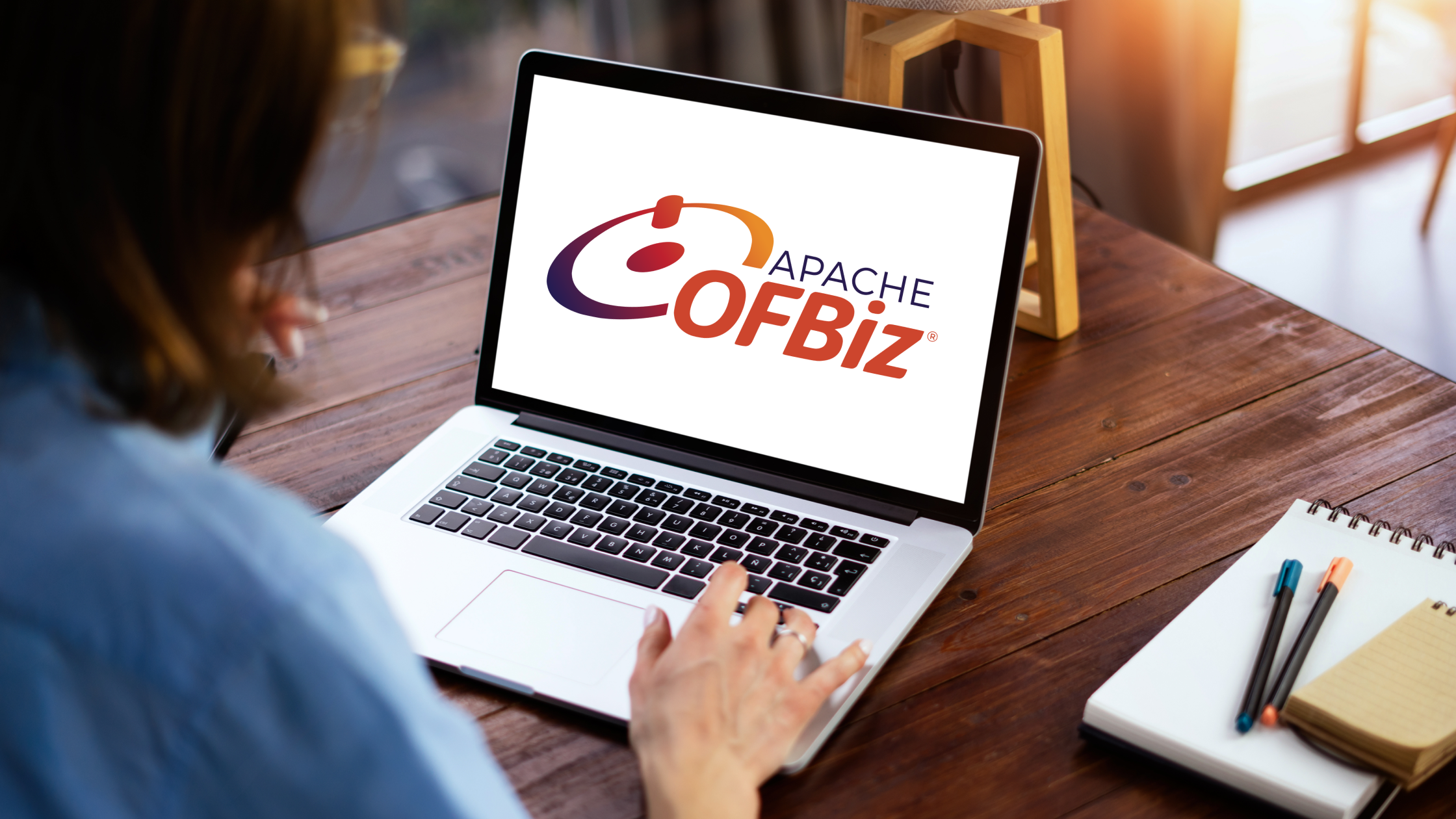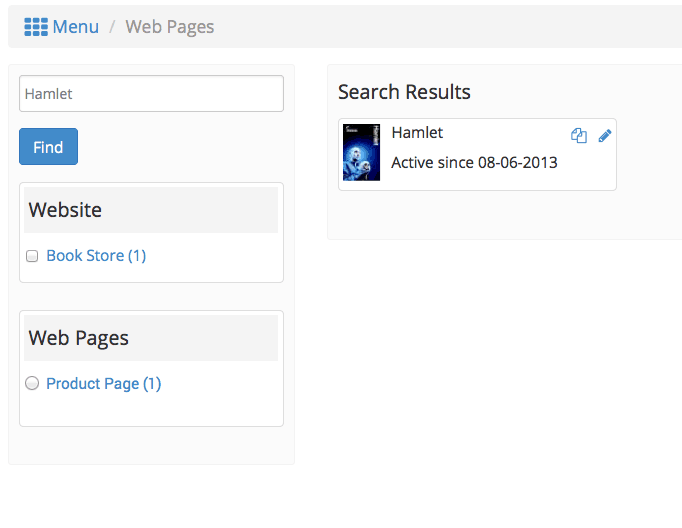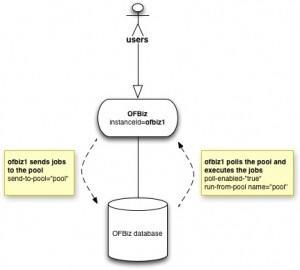Managing business operations isn’t getting any simpler. With more channels to serve, more data to track, and rising customer expectations, businesses are constantly looking for smarter ways to stay organized and responsive, without locking themselves into expensive, rigid software.
That’s where Apache OFBiz® comes in.
In this blog post, we’ll explore what makes Apache OFBiz unique, the business functions it supports, its key benefits, and how you can get started—whether you’re an analyst evaluating tools or a developer looking to build on a flexible foundation.
What is Apache OFBiz?
Developed under the umbrella of the Apache Software Foundation, Apache OFBiz (short for "Open For Business") is an open-source business automation solution and rapid application development framework. It helps organizations manage and streamline essential operations such as warehousing, inventory, orders, manufacturing, and customer relationship management—all from a unified platform. With most functionality available out of the box, businesses can hit the ground running and customize the rest to fit their needs.
Unlike rigid, off-the-shelf software, Apache OFBiz is designed to be highly modular and customizable. It provides a comprehensive set of applications by default, covering most standard business needs, while offering full control over the rest through customization.
What makes Apache OFBiz stand out is its robust technical foundation and community-driven development model. Built in Java and maintained by an active community of world-class software developers, it’s trusted by businesses seeking scalable solutions that can evolve over time.
In short, Apache OFBiz combines ready-to-use business functionality with the freedom to adapt and grow—without the costs or constraints of traditional proprietary systems. The platform is also well-suited for rapid prototyping, allowing teams to test ideas using existing modules before committing to full-scale custom development.
A Brief History of Apache OFBiz
The journey of Apache OFBiz began in the early 2000s, when David E. Jones and Andrew Zeneski created the OFBiz open-source project with the goal of developing software to help businesses automate their core operations. In 2006, the project joined the Apache Software Foundation as a fully endorsed Apache project.
Since then, thanks to a growing global community of contributors and users, Apache OFBiz has undergone continuous development and refinement. Its architecture has matured to become more modular and flexible, enabling businesses to adapt it to a wide range of use cases. Over time, the software has been actively maintained and improved through feature enhancements, issue resolution, and long-term support efforts.
As an open-source project backed by the Apache Software Foundation, Apache OFBiz continues to evolve through collaborative development and a shared commitment to building adaptable, enterprise-ready business automation solutions.
The Apache OFBiz Community
Today, Apache OFBiz is supported by a dynamic global community that plays a crucial role in the platform’s evolution.
This community-driven model brings several key advantages: quick responses from contributors across time zones, more eyes on the code for faster bug identification and resolution, greater transparency in development, and practical feature enhancements shaped by real-world use cases.
The community actively engages across multiple channels. Mailing lists are the primary space for discussions, questions, and support. The OFBiz Wiki offers comprehensive documentation, including setup guides, development tutorials, and architectural insights. For those who prefer video-based learning, the Apache OFBiz YouTube channel provides walkthroughs and demos. Bug tracking and feature development are managed through a publicly accessible issue tracker, and the entire codebase is hosted on GitHub.
Business Features of Apache OFBiz
Apache OFBiz comes with a set of built-in modules that support a wide range of business functions. These modules are accessible from a single dashboard and can be used independently or in combination, depending on business needs. Each module includes its own set of built-in functionalities and can be integrated to build a customized backend system. The main functionalities of Apache OFBiz include:
- Order Management
The order management module covers sales orders, purchase orders, requirements, quotes, and returns. It streamlines the entire order lifecycle, ensuring accurate tracking from procurement to customer delivery and return processing. - Warehouse Management
Apache OFBiz helps businesses manage warehouse workflows including inventory control, picking, packing, shipping, and stock movements. It also supports location-based tracking and warehouse space optimization, helping teams improve operational efficiency. - Manufacturing
Apache OFBiz provides manufacturing capabilities to define bills of materials (BOM), routing, routing tasks, and manage production runs. Additional features include Material Requirements Planning (MRP), cost tracking, and calendar-based scheduling. - Catalog Management
This module supports managing product stores, categories, and product information. Businesses can define product features, pricing rules, promotions, enabling dynamic and personalized catalog experiences. - Marketing Automation
The marketing module allows businesses to create and manage promotions, coupons, and campaigns. It supports rule-based pricing and customer targeting to increase engagement and conversion across sales channels. - Customer Relationship Management (CRM)
Apache OFBiz provides tools to manage leads, opportunities, and customer interactions. It helps sales teams track the pipeline and customer activity. - eCommerce
Apache OFBiz includes a customizable web store module for both B2C and B2B scenarios. It supports product listings, shopping carts, customer accounts, and payment processing—fully integrated with backend modules for seamless fulfillment. Alternatively, Apache OFBiz can be paired with a custom frontend to build a tailored business automation solution. - Accounting and Financials
Core financial features include invoicing, payment processing, fixed asset tracking, agreements, general ledger, and accounting transaction management. - Human Resources (HR)
Apache OFBiz allows businesses to manage employee records, roles, and permissions. It supports organizational structure setup and basic HR functions such as time tracking and access control.

Technical Features of Apache OFBiz
Apache OFBiz provides a framework designed to serve as a solid foundation for business automation software. Some of its key features include:
- Universal Data Model
Apache OFBiz offers a comprehensive business data model with over 1,000 entities, making it a valuable reference for enterprise data modeling. - Built to Scale
Apache OFBiz supports high transaction volumes, multi-unit operations, and complex business workflows—making it suitable for organizations of all sizes, from startups to large enterprises. - Easy Integration with External Systems
With built-in support for REST APIs, JSON messaging, and asynchronous communication, Apache OFBiz integrates easily with third-party platforms such as SAP, NetSuite, and custom systems—ideal for hybrid environments. - Headless Application Deployment
Apache OFBiz works well as a backend engine for headless architectures. Businesses can build modern, user-friendly frontends using frameworks like React or Angular, while relying on Apache OFBiz to manage data and business logic behind the scenes. - Rapid Application Development
Thanks to its built-in logic and reusable components, Apache OFBiz is ideal for building functional prototypes. This allows stakeholders to visualize workflows, validate requirements, and reduce risk before committing to full-scale implementation.

Tips to Successfully Implement an Apache OFBiz Project
Challenges in successfully implementing an Apache OFBiz project depend on your specific business needs, technical background, and implementation goals. Here are some tips for the main phases of a typical project:
- Getting Started with Apache OFBiz
Apache OFBiz provides detailed documentation and official demo environments to help you explore the platform before deployment. You can install it locally or in the cloud. The documentation guides you through setting up the database, configuring the server, and deploying the Apache OFBiz framework. - Configuration and Customization
You can configure Apache OFBiz to align with your workflows. Set up users, roles, permissions, and system preferences. If custom features are required, the platform supports extending existing modules or building new ones using Java, XML, and related technologies. - Data Migration
If you're transitioning from another system, data migration may be necessary. This involves extracting data from your current tools, transforming it to match Apache OFBiz’s format, and importing it into the new environment. To this end, you can leverage several tools available in the OFBiz Webtools module. - Training and Support
The Apache OFBiz Wiki offers a wide range of step-by-step tutorials and development guides. You can also find video tutorials on the official Apache OFBiz YouTube channel. Engaging with the Apache OFBiz community through mailing lists, issue trackers, and forums can help you gain confidence with the platform and its ecosystem. Whether you’re a developer, business user, or evaluator, the OFBiz community provides a reliable support network built on shared expertise and continuous improvement. For structured learning, you may also consider expert-led training from trusted providers. - Ongoing Maintenance
Apache OFBiz regularly receives version and security updates. Once your project is live, keeping your software up to date is essential to benefit from the latest security patches, bug fixes, and features. It's also important to monitor system performance, schedule regular backups, and stay engaged with the community for ongoing improvements and support.
Conclusion
Apache OFBiz offers a flexible and powerful foundation for businesses looking to streamline operations or build scalable custom applications. Its modular design, extensive features, and open-source nature make it suitable for organizations of all sizes — whether you're modernizing internal processes or launching a fully integrated system.
Apache OFBiz eliminates licensing fees, reduces reliance on commercial software, and minimizes long-term vendor lock-in. It’s also ideal for organizations aiming to innovate without large upfront investments.
For businesses seeking to explore Apache OFBiz further, implement it effectively, or tailor it to specific needs, working with experienced service providers can make all the difference. You can connect with the Apache OFBiz experts at HotWax Systems for guidance, implementation support, or training aligned with your business goals.







